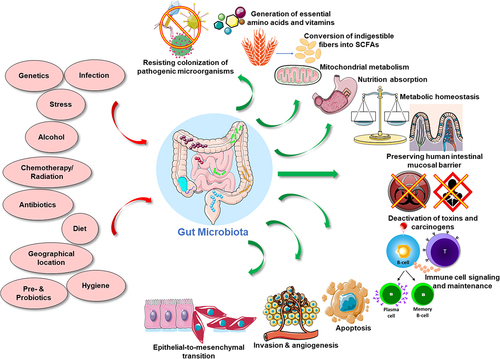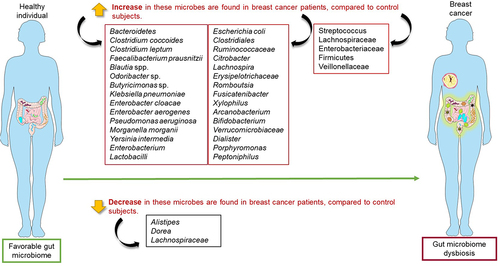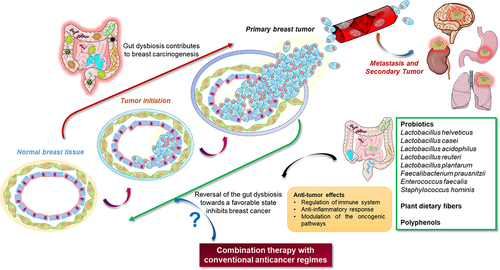Figures & data
Figure 1. An overview on the plethora of factors that regulate the gut microbiota and, subsequently, its downstream physiological functions. The gut microbes are critical for maintaining host health as they regulate a multitude of systemic functions as well as the immune system and, thus, confer a protective role against pathogens and carcinogens. The red arrows depict the regulatory impact of the different factors on the host microbiota. The green arrows denote the effect of the gut microbiota on the various functions within the host that help to maintain health of the subject.

Figure 2. There is a significant shift in the gut microbial composition in breast cancer subjects compared to healthy women, which is accompanied by alterations in the relative abundance of distinct microbial species and families.

Figure 3. Reversal of microbial dysbiosis can aid in inhibition of breast tumor development and progression by mounting the immune system and rewiring the cancer-associated pathways. Consumption of probiotics and a diet rich in fibers and polyphenols is likely to enrich the beneficial gut microbiota, which can impart an anti-tumor effect in breast cancer models. The red arrow indicates the various stages in the development of breast tumor, followed by subsequent metastasis. The green arrow depicts the suppression of breast tumorigenesis, following reversal of gut dysbiosis. The application of the gut microbiota in combination with contemporary therapeutic modules is a research focus for further investigations.

Data availability statement
It is a review article.
